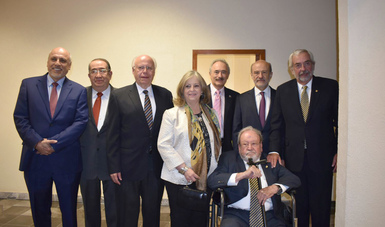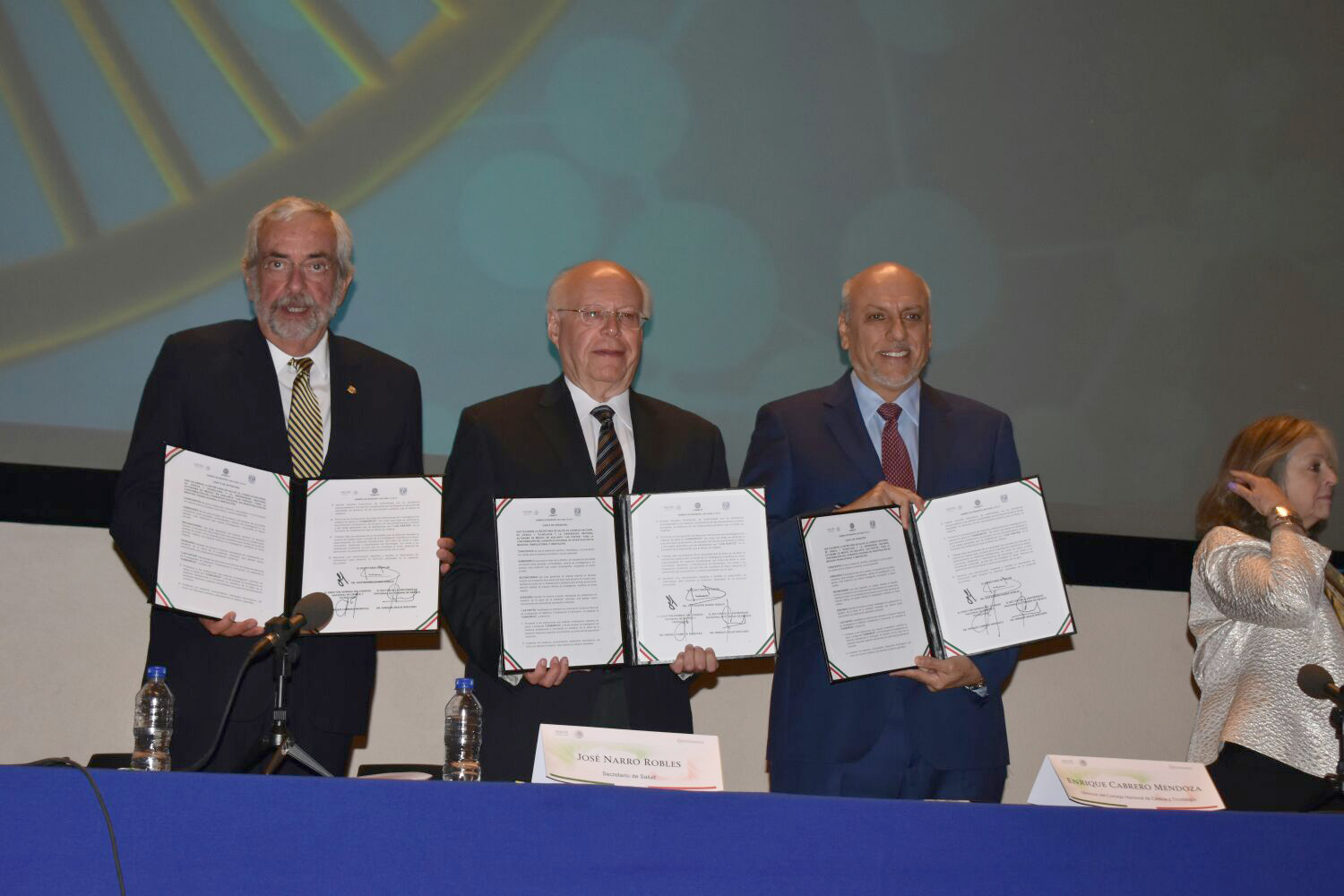The Ministry of Health, the National Council of Science and Technology (CONACYT) and the National Autonomous University of Mexico (UNAM) signed a letter of intent for the formation of the National Research Consortium in Translational Medicine and Innovation (MTI) of basic research in clinical applications that will benefit the health of Mexicans.
This cutting-edge project, first of its kind in Latin America, also seeks to ensure that new treatments and scientific knowledge reach the patients and populations for whom they are designed and applied correctly.
The Minister of Health, Jose Narro Robles, who signed the letter of intent together with the director general of Conacyt, Enrique Cabrero Mendoza, and the rector of the UNAM, Enrique Graue Wiechers, stated that the objective of the MTI Consortium is to erase borders and collapse walls that are sometimes built in the field of research.
Before representatives of the Health Sector, former secretary Guillermo Soberon, the academic community of the branch and patronates of national institutes and hospitals of the area, Narro Robles emphasized that along with the 13 national health institutes there are nine centers and research institutes of the UNAM and Conacyt who will participate in this project, because what is sown today will reap future generations.
Dr. Jose Narro warned that "if we continue where we are in front of the world we lag. He who stays where he is in contemporary society, is delayed. " Hence the need for Mexico to advance, think big and multiply by two.
During the event, held at the National Institute of Genomic Medicine, Enrique Cabrero Mendoza, Conacyt's general director, said that the MTI Consortium opens the way for greater interaction between these three institutions, which will facilitate the transition from basic research to the creation of technologies for the health of the population.
This institutional cooperation, he stressed, will be the axis of scientific work and the participation of multiple actors that will put Mexico on the frontier of knowledge.
In his turn, the UNAM rector, Enrique Graue, stressed that translational medicine involves "taking the laboratory bench to the patient's bed the solution to their health problem."
He pointed out that the MTI Consortium will detonate and accelerate scientific research in the country.
At the ceremony, 11 awards were given to researchers in medical sciences, for their outstanding contributions in different areas of health, including the creator of the vaccine against heroin and cocaine, Dr. Benito Antón Palma.
Minutes before, the head of the Coordinating Commission of National Institutes of Health and Hospitals of High Specialty, Guillermo Ruiz-Palacios y Santos, gave the lecture to the research in translational medicine and research in INSALUD, and the MTI Consortium.
The MTI Consortium, through the Coordinating Commission of National Institutes of Health and Hospitals of High Specialty (CCINSHAE), will allow the development of research projects for health carried out by national scientists, with the highest academic standards in health and related areas.
Its fundamental purpose is to become a set of institutions dedicated directly or indirectly to the research and development of medical processes that generate new knowledge, as well as its application in translational processes, such as methods, techniques, vaccines, prostheses, instruments and others.
The letter of intent specifies that the country's progress will be promoted, through scientific research in health, especially in translational medicine, as well as to carry out innovation, development and transfer of technology for commercial exploitation, essential engine of the generation Knowledge and economic progress of a country.
Follow us on Twitter:@SSalud_mx
Facebook: facebook.com/SecretariadeSaludMX

